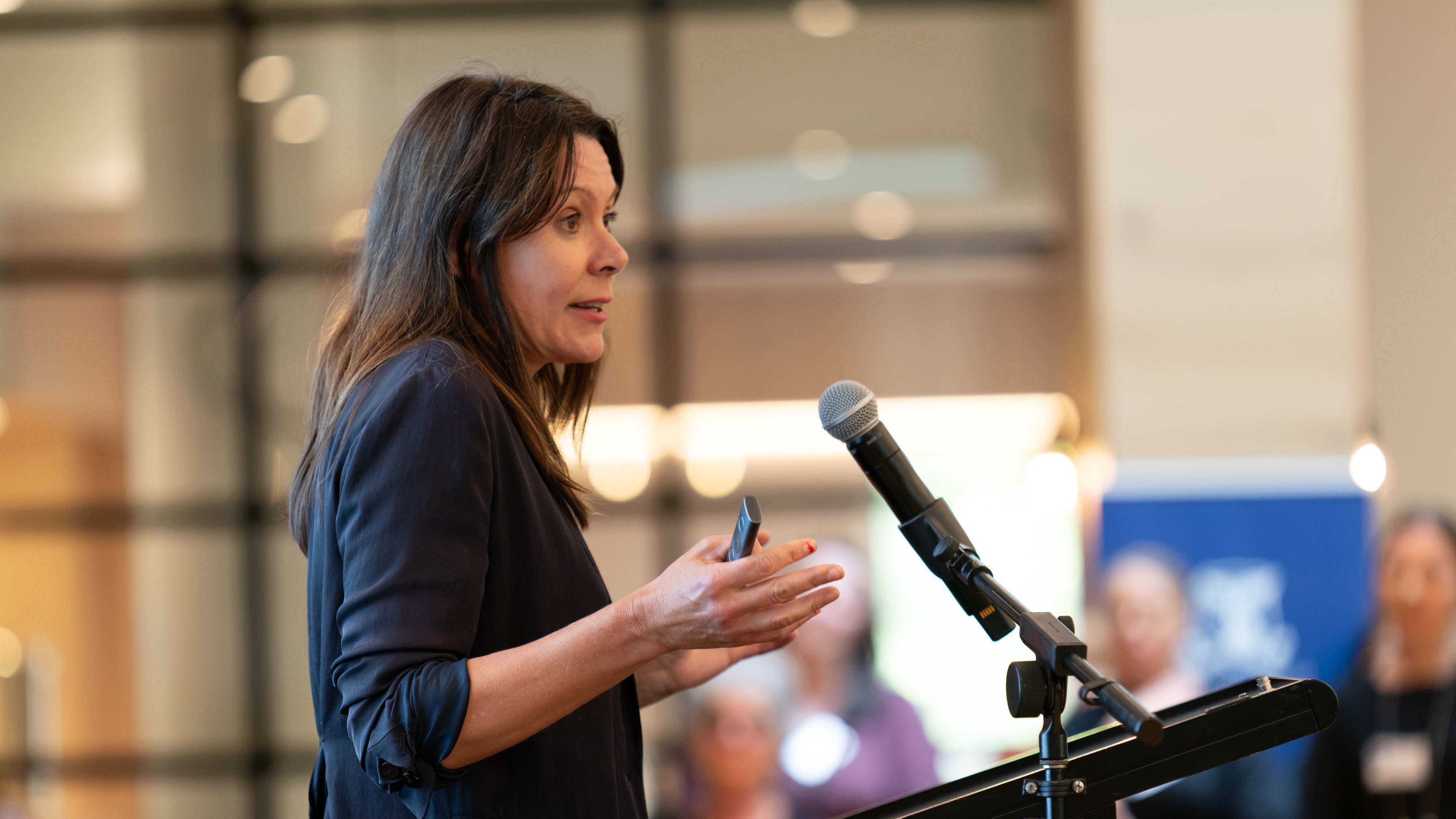Professor Angela Morgan shares insights about her NHMRC CRE research program - The Translational Centre for Speech Disorders
Led by the University of Melbourne and Murdoch Children’s Research Institute and partnered with various clinical and academic institutes across Australia, the Translational Centre for Speech Disorders will launch in 2023. It is a five-year NHMRC Centres of Research Excellence (CRE) research program spearheaded by the Department of Audiology & Speech Pathology's Professor Angela Morgan.
"A 2015 Senate enquiry into Speech Pathology services confirmed the critical cost and impact of speech disorder for Australians," said Professor Morgan.
"According to the Australian Bureau of Statistics, 50% of children with communication disability have unmet needs, which place them at a higher risk of unemployment and lower financial income later in life. These statistics are only likely to worsen given that our nation is losing its manual industries and is increasingly reliant on a professional white-collar workforce where excellent communication skills are a requisite skill.'

Professor Angela Morgan
"I am thrilled that speech disorders have been recognised as a priority area of clinical research need," she said.
"We are so excited to have this dedicated funding to train health professionals in the area of speech disorder."
This NHMRC CRE is a collaboration led by the University of Melbourne and Murdoch Children’s Research Institute together with a national base of clinical and academic partners at the Walter and Eliza Hall Institute, Queensland Children’s Hospital, Royal Children’s Hospital Melbourne, Macquarie University, University of Queensland, Sydney Children’s Hospital Network, Hunter Genetics, University of Adelaide, Curtin University, Perth Children’s Hospital, the University of Tasmania and Royal Hobart Hospital.
The Translational Centre for Speech disorders is focused on severe speech disorders of childhood which typically carry a lifelong burden of associated poor literacy and academic attainment, limited social and employment opportunities. These disorders come with a watermark of psychosocial impacts due to the communication breakdown experienced by individuals on a daily basis.
One focus of the Centre is better understanding the cause of severe speech conditions such as childhood apraxia of speech. Professor Morgan’s team have made exceptional progress in understanding severe speech disorders, demonstrating that around one in three children have a genetic cause for their disorder. Another key focus of the centre is on research training, with the grant supporting postgraduate education of many multi-disciplinary focused PhD students and post-doctoral fellows.
'We will be advertising key roles associated with the grant in the new year and we would encourage anyone interested in this area of work to get in touch', Professor Morgan invites dedicated and passionate researchers from multiple disciplines to support this effort going forward, We are looking for the best and brightest of course, but importantly, we also want enthusiastic individuals who have a passion to make a difference in the lives of children with communication disorder.'